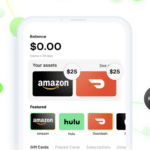Could we tempt you to give up your personal information? Share your shopping habits with strangers? Possibly expose your data to bad guys?
No? Well, how about if we give you a dollar off your Cheerios?
Grocery and retail loyalty programs have been around for decades now. So you should be well aware by now of the tradeoffs involved, in sharing your information in exchange for discounts.
But in this age of data breaches, identity theft and more outlets than ever asking for you to give them something before they give you anything – more consumers are thinking twice about whether the coupons and discounts are worth it.
In a newly-published report on “Privacy and Information Sharing“, the Pew Research Center revealed that a majority of Americans aren’t quite so enthusiastic about trading their data for deals.
“Would this scenario be acceptable to you, or not?” researchers asked. “A grocery store has offered you a free loyalty card that will save you money on your purchases. In exchange, the store will keep track of your shopping habits and sell this data to third parties.”
Less than half of respondents – 47% to be precise – found that acceptable, with younger and lower-income shoppers more likely to be okay with it. 32% said no, and 20% said it depends.
Those who were okay with the arrangement said it was worth it to them. “If my data are secure and I get the deals, it’s okay,” one respondent said. “As far as I can tell, the information is not being used inappropriately or specifically tied to me by third parties, which I’m okay with,” another said.
But the majority of shoppers weren’t so sure. “I would take the card to get discounts or coupons, but I wouldn’t want them selling my information to third parties. That would be a violation of my rights,” one respondent said. “If I am spending my money in that store, they have no right to sell any information about me,” another said.
The skepticism contradicts some earlier studies that found most shoppers were fine with sharing their personal information in exchange for coupons and deals. A 2012 Harris Poll found that 81% approved of grocery stores using personal information to offer customized coupons.
But it’s that “third party” clause that seems to concern people. What “third parties”, what kind of information will they get, and what will they do with it?
Shoppers at several A&P-owned stores were confronted with that question a few months ago, after the company went bankrupt and put millions of customers’ loyalty data on the auction block. The stores’ terms of service promised that “we will not sell or rent our customers’ names, addresses (street and e-mail), or phone numbers to any other company.” But once bankruptcy proceedings began, all bets – and prior promises – were off.
Researchers involved in a separate study suggest that people aren’t as comfortable with the data-for-discounts tradeoff as surveys like Pew’s would suggest. The authors of a University of Pennsylvania study presented their findings to a Federal Trade Commission privacy forum last week. In “The Tradeoff Fallacy: How Marketers Are Misrepresenting American Consumers And Opening Them Up to Exploitation,” the researchers found that most shoppers aren’t as enthusiastic about the tradeoff, as they are simply resigned to the idea. “Our study reveals that more than half (of respondents) do not want to lose control over their information, but also believe this loss of control has already happened,” the authors write.
These days, you’re sharing your data via more than just loyalty programs. Retailers and marketers can learn about you every time you print and use a coupon, shop online, or scan a receipt in a rebate app. If that means the deals and coupons you’re offered are better and more relevant to you, you might think it’s worth it. But if you’re concerned about your privacy, those coupons and deals may turn out to be more expensive than you bargained for.














